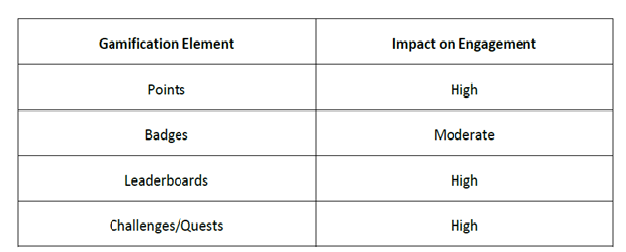The Implications of Mobile Gamification on E-Learning: Improving Learning Outcomes and Engagement among Students

DOI:
https://doi.org/10.54060/a2zjournals.jmss.102Keywords:
Mobile gamification, e-learning, student engagement, educational technologyAbstract
Gamification is reshaping education by integrating game elements into mobile e-learning environments to enhance student engagement and learning outcomes. Drawing on insights from 20 academic sources, this report reviews current research on mobile gamification and its impact on online education. It outlines key gamification concepts, examines their application in mobile learning, and analyses empirical findings on their influence on motivation, participation, and achievement. Gamification involves applying game design principles—such as rewards, badges, leaderboards, and challenges—beyond gaming contexts to stimulate motivation through achievement, recognition, and competition. Mobile platforms are well-suited for gamification, enabling learning anytime and anywhere, and increasing interactivity and enjoyment. Evidence shows that mobile gamification can significantly improve engagement by fostering active participation, competition, and a sense of accomplishment. For example, gamified language learning apps encourage regular practice, leading to measurable skill gains. However, challenges exist. Overreliance on extrinsic rewards may undermine intrinsic motivation, while diverse learner preferences demand varied and customizable game elements. Developing and maintaining gamified systems also requires substantial resources and careful alignment with educational goals. Despite these issues, the potential benefits are substantial. Balancing extrinsic and intrinsic motivation, ensuring inclusivity, and providing flexible design are key to maximizing effectiveness. Future research should explore the long-term effects of gamification and leverage emerging technologies to refine learning experiences. When implemented thoughtfully, mobile gamification can foster higher retention, deeper engagement, and improved academic performance, making it a valuable tool in modern education.
Downloads
References
Crompton, H. (2013). A historical overview of mobile learning: Toward learner-centered education. In Z. L. Berge & L. Y. Muilenburg (Eds.), Handbook of mobile learning (pp. 3-14). Routledge.
Deterding, S., Dixon, D., Khaled, R., & Nacke, L. (2011). From game design elements to gamefulness: Defining "gamification". In Proceedings of the 15th International Academic MindTrek Conference: Envisioning Future Media Environments (pp. 9-15). ACM.
Dicheva, D., Dichev, C., Agre, G., & Angelova, G. (2015). Gamification in education: A systematic mapping study. Educational Technology & Society, 18(3), 75-88.
Domínguez, A., Saenz-de-Navarrete, J., De-Marcos, L., Fernández-Sanz, L., Pagés, C., & Martínez-Herráiz, J. J. (2013). Gamifying learning experiences: Practical implications and outcomes. Computers & Education, 63, 380-392.
Hamari, J., Koivisto, J., & Sarsa, H. (2014). Does gamification work? --A literature review of empirical studies on gamification. In 2014 47th Hawaii International Conference on System Sciences (p. 3025-3034). IEEE.
Hakulinen, L., Auvinen, T., & Korhonen, A. (2015). The effect of achievement badges on students' behavior: An empirical study in a university-level computer science course. International Journal of Emerging Technologies in Learning (iJET), 10(1), 18-29.
Sailer, M., Hense, J. U., Mayr, S. K., & Mandl, H. (2017). How gamification motivates: An experimental study of the effects of specific game design elements on psychological need satisfaction. Computers in Human Behavior, 69, 371-380.
Anderson, C. A., & Dill, K. E. (2000). Video games and aggressive thoughts, feelings, and behavior in the laboratory and in life. Journal of Personality and Social Psychology, 78(4), 772.
Barata, G., Gama, S., Jorge, J., & Gonçalves, D. (2013). Improving student motivation with gamification. In Proceedings of the First International Conference on Gameful Design, Research, and Applications (pp. 47-55). ACM.
Caponetto, I., Earp, J., & Ott, M. (2014). Gamification and education: A literature review. In Proceedings of the European Conference on Games Based Learning (pp. 50-57).
de-Marcos, L., Domínguez, A., Saenz-de-Navarrete, J., & Pagés, C. (2014). An empirical study comparing gamification and social networking on e-learning. Computers & Education, 75, 82-91.
Gee, J. P. (2003). What video games have to teach us about learning and literacy. Computers in Entertainment (CIE), 1(1), 20-20.
Gee, J. P. (2008). Learning and games. The Ecology of Games: Connecting Youth, Games, and Learning, 3, 21-40.
Kapp, K. M. (2012). The gamification of learning and instruction: Game-based methods and strategies for training and education. John Wiley & Sons.
Kim, S., Song, K., Lockee, B., & Burton, J. (2018). Gamification in learning and education: Enjoy learning like gaming. Springer.
Landers, R. N., & Callan, R. C. (2011). Casual social games as serious games: The psychology of gamification in undergraduate education and employee training. In Serious games and edutainment applications (pp. 399-423). Springer.
Liu, D., Santhanam, R., & Webster, J. (2017). Toward meaningful engagement: A framework for design and research of gamified information systems. MIS Quarterly, 41(4), 1011-1034.
Mekler, E. D., Brühlmann, F., Opwis, K., & Tuch, A. N. (2017). Towards understanding the effects of individual gamification elements on intrinsic motivation and performance. Computers in Human Behavior, 71, 525-534.
Suh, A., & Wagner, C. (2017). How gamification of an enterprise collaboration system increases knowledge contribution: An affordance approach. Journal of Strategic Information Systems, 26(3), 193-213.
Wang, F., & Hannafin, M. J. (2005). Design-based research and technology-enhanced learning environments. Educational Technology Research and Development, 53(4), 5-23

Downloads
Published
How to Cite
CITATION COUNT
Issue
Section
License
Copyright (c) 2025 Sonia Yadav, Sweta Dixit

This work is licensed under a Creative Commons Attribution 4.0 International License.
























